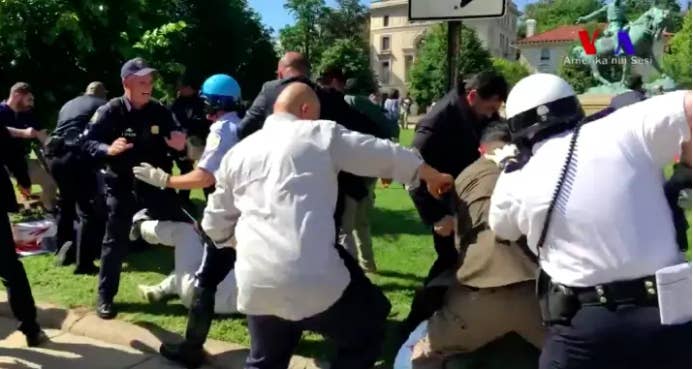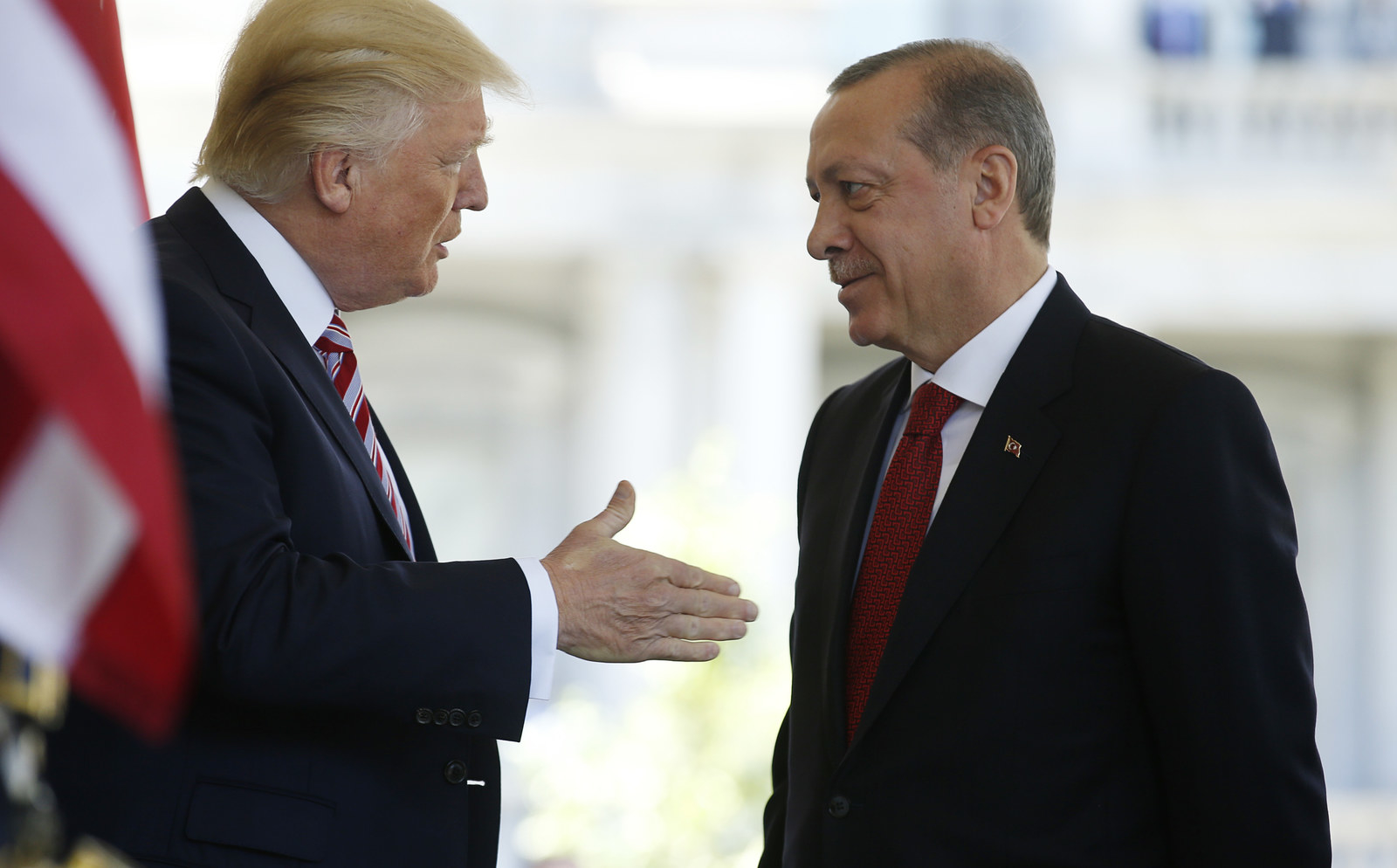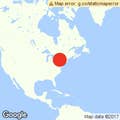
When Turkish security guards violently suppressed a group of protesters in Washington on Tuesday, the altercation ricocheted across television and social media, and triggered an immediate diplomatic firestorm between the two allied nations.
But what the viral images of chokeholds, sucker punches, and flying fists didn’t show was a carefully-orchestrated presentation taking place inside the Turkish ambassador’s residence just a few feet away.
Turkish President Recep Tayyip Erdogan was holding an off-the-record meeting with a hand-picked list of Washington power players at the same time as tensions ballooned between anti-Erdogan demonstrators and pro-government supporters.
The purpose of the meeting, according to an account provided to BuzzFeed News, was to dispel negative American perceptions about Erdogan’s massive crackdown on political dissent and consolidation of power in Turkey.
But any subtle public relations gains made by Erdogan inside the room were manifestly overturned by the conduct of his guards outside the room, which confirmed many critics’ worst assumptions about the president’s authoritarian instincts and tightening stranglehold over public life.
It also caused discomfort for the meeting’s American participants, who became props in the Turkish government’s image-shaping campaign.
“The meeting was not actually intended to be any sort of dialogue, but rather a way to have a story in the Turkish press about important people having an audience with President Erdogan,” Steven Cook, a Turkey expert at the Council on Foreign Relations, told BuzzFeed News. Cook did not attend the meeting.
In Washington, a closed-door meeting between a foreign leader and former US officials might have flown under the radar if not for the heightened attention and uproar generated by Tuesday’s bloody altercation.
#Erdoğan'ın korumaları kavgaya karıştı https://t.co/gsi1iQ68Ye #amerikaninsesi
The State Department condemned the incident as an affront to free speech and DC police characterized the guards’ actions as a “brutal attack” that wounded 11 people, including a police officer. Turkey’s ambassador, Serdar Kilic, was summoned to the State Department on Wednesday by Under Secretary of State Tom Shannon, the No. 3 official in Foggy Bottom.
Video footage showing Erdogan briefly overlooking the brawl has fueled speculation that the president himself ordered his guards to break up the protest before he entered the ambassador’s residence. The incident is prompting bipartisan outrage on Capitol Hill.
“This kind of thing cannot go unresponded to diplomatically,” Sen. John McCain told MSNBC. The Arizona Republican called on the Trump administration to “throw their ambassador the hell out of the United States of America.”
The closed-door meeting on Tuesday was facilitated by two think tanks, the Atlantic Council and SETA, a pro-Erdogan organization. The meeting did not include “serious” Turkey specialists or known Erdogan critics, which resulted in a Q&A session devoid of tough questions, a source familiar with the meeting said.
The Turkish Embassy declined to provide a list of participants, but the source confirmed that attendees included Stephen Hadley, the former national security adviser under President George W. Bush, James Jones, the former national security adviser under President Barack Obama, Fred Kempe, the president of the Atlantic Council, and a handful of other former US officials. Politico highlighted the meeting on Thursday.
Jones and Hadley did not respond to requests for comment.
The Atlantic Council, when asked about the guestlist and the softball questions, offered a statement from Kempe condemning the “violence that occurred.”
“The Council frequently convenes small, off-the-record sessions such as the one for President Erdoğan, at which he fielded questions that addressed issues ranging from international to domestic challenges,” said Kempe. “Atlantic Council events never endorse a particular speaker but provide an independent platform for leaders to participate in candid conversations.”
The meeting follows claims that the Atlantic Council excluded speakers, including a member of its own staff, from an event in April at its annual energy summit in Istanbul due to pressure from the Turkish government. Kempe denied the allegation.
For Turkey, the debacle on Tuesday further set back its efforts to sell the Erdogan government as a vital ally to the United States despite concerns about democratic backsliding.
“The events outside of the Turkish Ambassador’s residence have completely overshadowed the principle reason for President Erdogan’s meeting with President Trump,” said Joshua Walker, a DC-based Turkey scholar.

Erdogan came to Washington with a series of difficult asks for the Trump administration. Turkey blames Fethullah Gulen, a Pennsylvania-based religious leader, for attempting a coup last year and has demanded his extradition. US officials still say they lack sufficient evidence to begin extradition proceedings.
Erdogan is also calling for the United States to withdraw its support for Syrian Kurdish militants known as the People’s Protection Units, or YPG. The US considers the group one of its best proxies for fighting the Islamic State in Syria, but Ankara views them as a hostile threat due to its affiliations with the PKK, a group the US and Turkey consider a terrorist organization.
On Thursday, Turkish Foreign Minister Mevlut Cavusoglu took the bold step of calling on Trump to replace his envoy to the anti-ISIS coalition, Brett McGurk, because of his alleged sympathies for the YPG. “It would be beneficial for this person to change,” he said.
In response, State Department spokeswoman Heather Naeurt said in a statement that McGurk had the “full support and backing” of Secretary of State Rex Tillerson.
Despite the clear differences between the US and Turkey, Erdogan sought to turn a new page with Trump, and lavished him with praise during their meeting on Tuesday. He congratulated Trump for the “legendary triumph” of his presidency and said the US election “has led to the awakening of a new set of aspirations and expectations and hopes in our region.”
But Tuesday’s incident, which produced a flurry of photographs showing protesters getting punched, kicked and stomped, quickly overshadowed the positive sentiments.
“If the Turks wanted to change the narrative in Washington, they failed,” said Walker.

